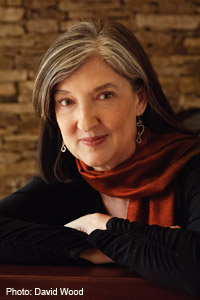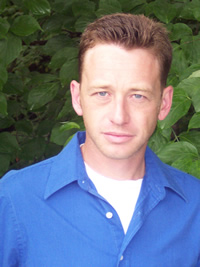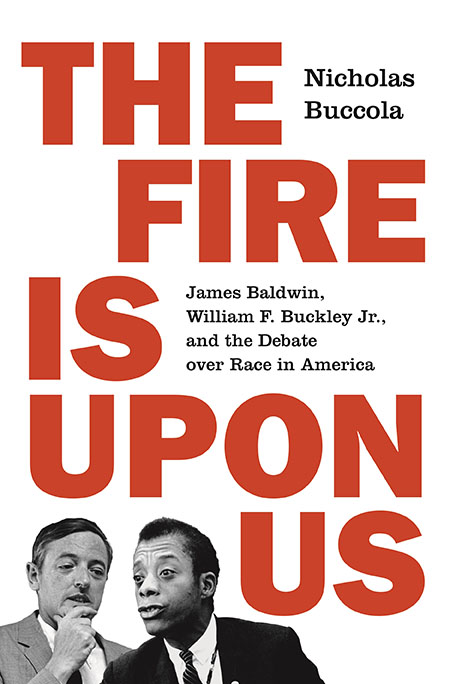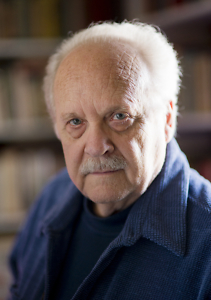Feeling a Sacred Trust
Novelist and activist Silas House talks with novelist and activist Barbara Kingsolver about the need to end mountaintop-removal mining—and preserve the mountains they love
On March 11, two of Appalachia’s favorite daughters combine their talents to present a show at the Bijou Theatre in Knoxville. Bestselling author Barbara Kingsolver will be there with Grammy-award winning singer Kathy Mattea for “A View from the Mountaintop,” an evening of spoken word and song. The two artists are particularly hoping to let more people know about their work against mountaintop removal coal-mining, and about the Scenic Vistas Protection Act, a bill proposed by the Lindquist Environmental Appalachian Fellowship (LEAF), that would protect ridges above 2,000 feet from being removed by surface coal mining. Just yesterday the Vistas Act was passed out of the Senate Energy and Environment Committee with an industry-sponsored amendment that guts the intention of the bill, allowing Senators to tell constituents they voted for the bill while doing nothing to actually protect the mountains.
Kingsolver is widely considered one of the great modern American writers. Her works include The Poisonwood Bible, The Bean Trees, The Lacuna, and many others. In 2000, she was awarded the National Humanities Medal, our country’s highest honor for service through the arts.
Kingsolver is also widely known for her activism and her commitment to the environment and labor issues. Her book Animal, Vegetable, Miracle was at the forefront of the local foods movement. Among her many contributions to community and social justice, Kingsolver also established the PEN/Bellwether Prize for Socially Engaged Fiction, which gives the largest monetary award for a work of fiction in North America.
I recently sat down with Kingsolver to talk about her commitment to Appalachia, the mountains, the environmental movement, and much more.
Silas House: Can you talk about your connection to the land, and to mountains in particular?
 Barbara Kingsolver: Every one of us is born to a landscape that feels like home, I suppose, and this one is mine. I grew up in rural Kentucky, spending every possible hour of childhood playing in wooded hollows with no adult supervision. As an adult I lived for many years in the desert Southwest, which taught me a lot but somehow never completely took me in. My soul stayed thirsty. Every year when we drove back here to see family, at some point in Tennessee the horizon would rise up and fill my eyes with the right color of green and I would inhale and say: almost there. Now I am here for good, on a farm in southern Appalachia, just a few miles down the road from where my grandfather’s people are buried. Some people never get to come home again, but I am so lucky. I did.
Barbara Kingsolver: Every one of us is born to a landscape that feels like home, I suppose, and this one is mine. I grew up in rural Kentucky, spending every possible hour of childhood playing in wooded hollows with no adult supervision. As an adult I lived for many years in the desert Southwest, which taught me a lot but somehow never completely took me in. My soul stayed thirsty. Every year when we drove back here to see family, at some point in Tennessee the horizon would rise up and fill my eyes with the right color of green and I would inhale and say: almost there. Now I am here for good, on a farm in southern Appalachia, just a few miles down the road from where my grandfather’s people are buried. Some people never get to come home again, but I am so lucky. I did.
House: It’s a blessing to have that kind of connection, but some people don’t. Why do you think we’ve become so disconnected from the land that we allow something like mountaintop removal to happen?
Kingsolver: It’s a good question, because you’re right—we will stand for the wreckage of something only if we have ceased to take it personally. The age-old strategy for mobilizing a population to war is first to de-personalize the enemy. In World War II, the war propaganda so demonized Japanese people [that] they were no longer tolerated even as citizens and neighbors. It’s the same in civil-rights wars, and class wars, and very much the fate of the natural world to be defined as the enemy: we spend our whole lives weather-proofing and bug-proofing, spending as little time as possible outdoors. We assign value only to human constructions, forgetting about all those other lives in the woods, all that majesty in a mountain. But the idea that we are separate from our world is a dangerous delusion. Every breath of oxygen we take was first exhaled by a leaf. No animal, even us, can be safer or healthier than its habitat.
House: Even if folks do consider that, there’s still the notion that we shouldn’t complain about mountaintop removal because we need cheap electricity and mining jobs. How would you respond to that?
Kingsolver: I would remind them of history. From one century to the next we move forward with an ever-wider sense of the common good. Plantation owners once insisted we couldn’t complain about enslaved labor because we needed cheap cotton. I grew up among tobacco farmers, and it was hard for us to believe the product of our honest family labor was making the world sick. But that was true, and now it is true again: mining coal is honest work, but it has wrecked lungs and landscapes and watersheds and lives uncounted, and now we know that burning it is making the world sick. We found new ways to grow cotton; we will find other ways to make electricity, and to turn ourselves to labor that won’t destroy the very ground on which we stand. Appalachians are resourceful. We owe it to ourselves and the world to prove this yet again.
House: You and Mattea both have figured out a way to help in this cause, through your art, and other ways. But often people tell me they don’t know how to help in the effort to stop mountaintop removal. Do you have answers for that?
Kingsolver: Our homeland belongs to us, the people who live here. Our region has a long history of being exploited for its resources by lumber barons and coal barons who hauled out the goods and left us with a mess. That stops when we find our voice. Every one of us is part of that voice. It might seem a small thing, to call or write or email a congressperson, speak up in a meeting, talk to a neighbor, and vote. But these are large things. Together we make history.
 House: So often I hear people say that writers, actors, and musicians should just entertain and not speak out on “political issues.” Have you heard this kind of thinking?
House: So often I hear people say that writers, actors, and musicians should just entertain and not speak out on “political issues.” Have you heard this kind of thinking?
Kingsolver: I am just amazed when I hear this. Who would be so rude as to tell his mechanic, “Shut up and fix my car,” or her hairdresser, “Don’t talk to me about your mission trip; just clip.” We are all people, musicians and writers and mechanics alike, with the same right to attend the church of our choice and invest in the spiritual beliefs that move us. Walking in the heart of the mountains is one aspect of the church of my choice. I feel a sacred trust to hold our beautiful creation intact for future generations. A gospel singer sings her gospel. A writer writes what is in her heart. How could it be otherwise?
House: Time at home is so valuable for an artist, and so hard to come by once you’re successful. It seems that in recent years you have very wisely kept a low profile unless you are particularly moved by a major issue. Why did you choose to come forward and participate in this particular event?
Kingsolver: As a Southern Appalachian with a deep respect for both our communities and our environment, I feel a certain passion to speak up. The popular notion is that farmers and country people can’t be environmentalists. The media loves to stereotype us, NASCAR vs. Prius. But we are so much smarter than that, and more nuanced. We can cross these lines to talk about our future. Kathy Mattea is a beloved country-music artist who engages her listeners in the subtleties of this conversation. I love her work, from all angles, and am thrilled for the chance to join forces.
Silas House is the author of five novels, most recently Same Sun Here. The former writer-in-residence at Lincoln Memorial University in Harrogate, Tennessee, he is now director of the Appalachian Center at Berea College in Berea, Kentucky.
Barbara Kingsolver and Kathy Mattea present “A View from the Mountaintop” at the Bijou Theatre in Knoxville on March 11. Click here for event details and here for more information, including videos, about mountain-top removal mining.





